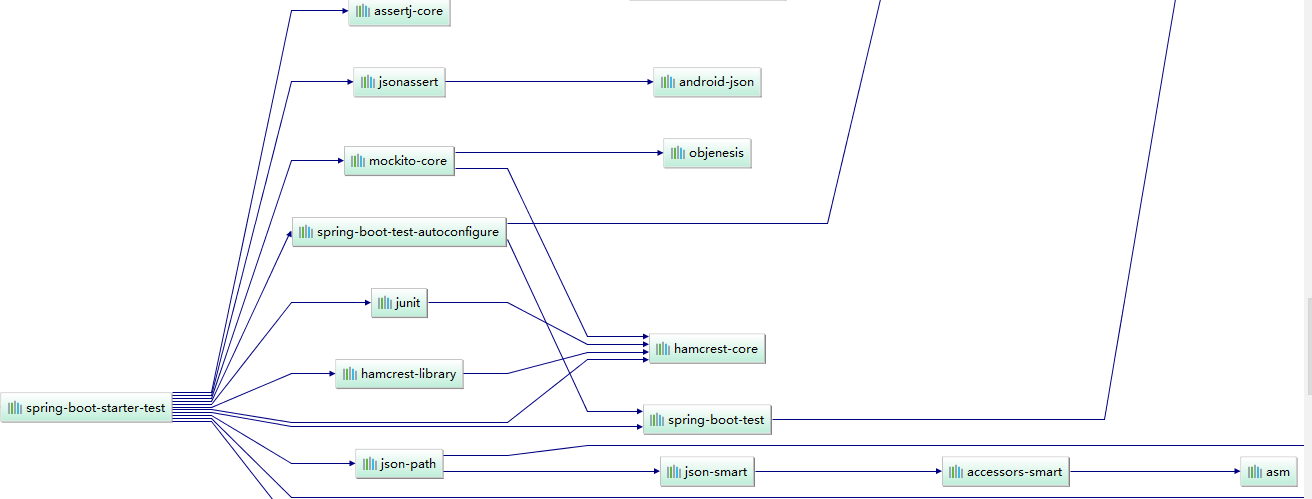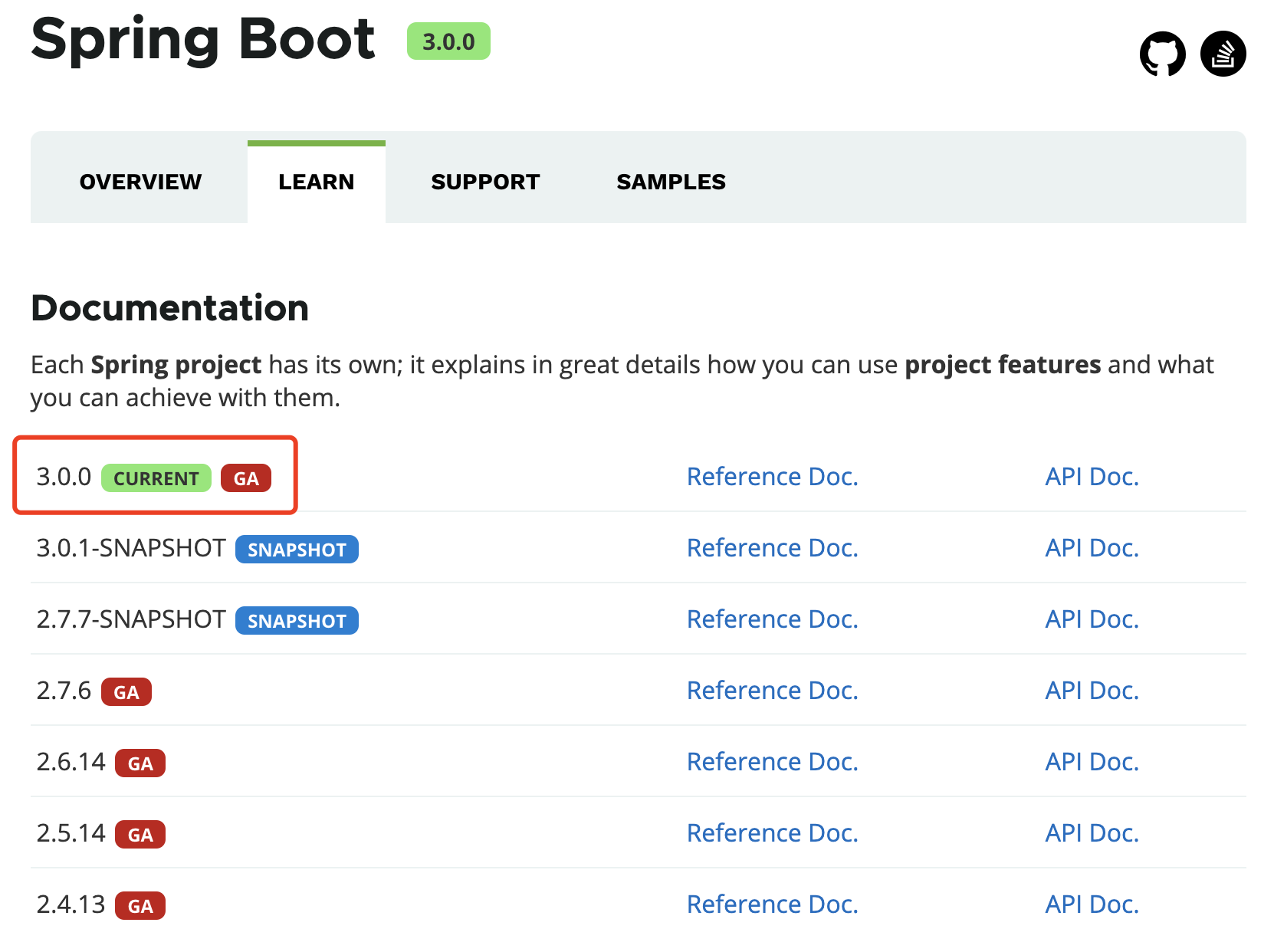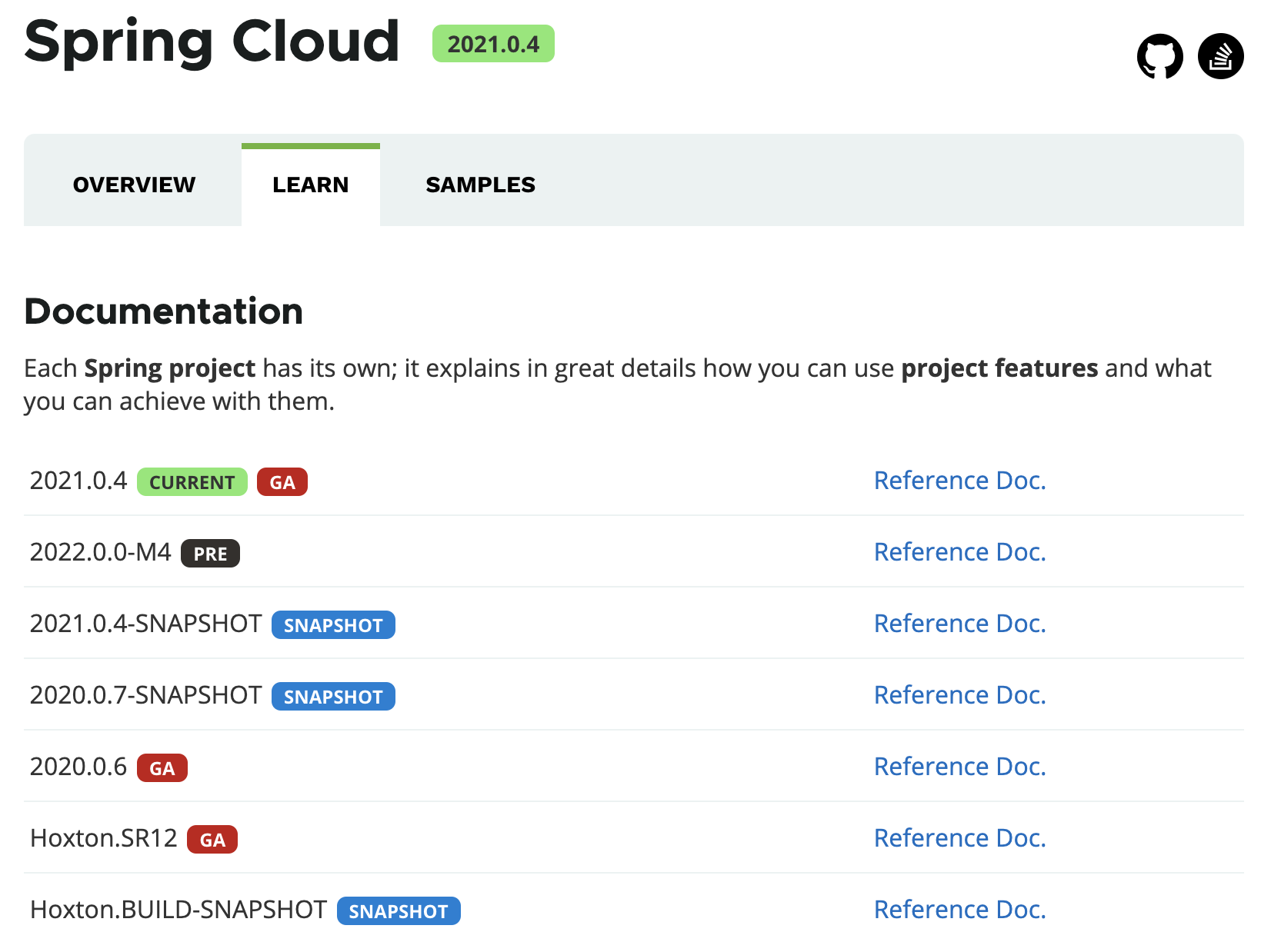Spring Boot 的测试类库
Spring Boot 提供了许多实用工具和注解来帮助测试应用程序,主要包括以下两个模块。
-
spring-boot-test:支持测试的核心内容。
-
spring-boot-test-autoconfigure:支持测试的自动化配置。
开发进行只要使用 spring-boot-starter-test 启动器就能引入这些 Spring Boot 测试模块,还能引入一些像 JUnit, AssertJ, Hamcrest 及其他一些有用的类库,具体如下所示。
- JUnit:Java 应用程序单元测试标准类库。
- Spring Test & Spring Boot Test:Spring Boot 应用程序功能集成化测试支持。
- AssertJ:一个轻量级的断言类库。
- Hamcrest:一个对象匹配器类库。
- Mockito:一个Java Mock测试框架,默认支付 1.x,可以修改为 2.x。
- JSONassert:一个用于JSON的断言库。
- JsonPath:一个JSON操作类库。
下面是 Maven 的依赖关系图。

以上这些都是 Spring Boot 提供的一些比较常用的测试类库,如果上面的还不能满足你的需要,你也可以随意添加其他的以上没有的类库。
测试 Spring Boot 应用程序
添加 Maven 依赖
<dependency>
<groupId>org.springframework.boot</groupId>
<artifactId>spring-boot-starter-test</artifactId>
<version>1.5.10.RELEASE</version>
<scope>test</scope>
</dependency>
1、 要让一个普通类变成一个单元测试类只需要在类名上加入 @SpringBootTest 和 @RunWith(SpringRunner.class) 两个注释即可。
2、 在测试方法上加上 @Test 注释。
如果测试需要做 REST 调用,可以 @Autowire 一个 TestRestTemplate。
@RunWith(SpringRunner.class)
@SpringBootTest
public class BBTestAA {
@Autowired
private TestRestTemplate testRestTemplate;
@Test
public void testDemo() {
...
}
}
GET请求测试
@Test
public void get() throws Exception {
Map<String,String> multiValueMap = new HashMap<>();
multiValueMap.put("username","Java技术栈");
ActResult result = testRestTemplate.getForObject("/test/getUser?username={username}",ActResult.class,multiValueMap);
Assert.assertEquals(result.getCode(),0);
}
POST请求测试
@Test
public void post() throws Exception {
MultiValueMap multiValueMap = new LinkedMultiValueMap();
multiValueMap.add("username","Java技术栈");
ActResult result = testRestTemplate.postForObject("/test/post",multiValueMap,ActResult.class);
Assert.assertEquals(result.getCode(),0);
}
文件上传测试
@Test
public void upload() throws Exception {
Resource resource = new FileSystemResource("/home/javastack/test.jar");
MultiValueMap multiValueMap = new LinkedMultiValueMap();
multiValueMap.add("username","Java技术栈");
multiValueMap.add("files",resource);
ActResult result = testRestTemplate.postForObject("/test/upload",multiValueMap,ActResult.class);
Assert.assertEquals(result.getCode(),0);
}
文件下载测试
@Test
public void download() throws Exception {
HttpHeaders headers = new HttpHeaders();
headers.set("token","javastack");
HttpEntity formEntity = new HttpEntity(headers);
String[] urlVariables = new String[]{"admin"};
ResponseEntity<byte[]> response = testRestTemplate.exchange("/test/download?username={1}",HttpMethod.GET,formEntity,byte[].class,urlVariables);
if (response.getStatusCode() == HttpStatus.OK) {
Files.write(response.getBody(),new File("/home/javastack/test.jar"));
}
}
好了,今天的分享就到这里,更多 Spring Boot 文章正在撰写中,关注Java技术栈微信公众号获取第一时间推送。
在公众号后台回复:boot,还能获取栈长整理的往期 Spring Boot 教程,都是实战干货,以下仅为部分预览。
- Spring Boot 读取配置的几种方式
- Spring Boot 如何做参数校验?
- Spring Boot 最核心的 25 个注解!
- Spring Boot 2.x 启动全过程源码分析
- Spring Boot 2.x 新特性总结及迁移指南
- ……
本文原创首发于微信公众号:Java技术栈(id:javastack),转载请原样保留本信息。
声明:本站所有文章,如无特殊说明或标注,均为本站原创发布。任何个人或组织,在未征得本站同意时,禁止复制、盗用、采集、发布本站内容到任何网站、书籍等各类媒体平台。如若本站内容侵犯了原著者的合法权益,可联系我们进行处理。




